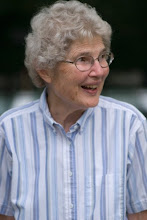I've been interested for a long time in the ways in which societies are organized. Lately, I've been playing with a theory that there are four kinds of forces which account for most social organization. I define each type of force according to the human need the force gains its power to organize society through:
Military
Military forces draw their influence from two interrelated sources: the human need for security and the constant possibility of resort to physical force. That is, they can either organize people with the promise of protection or the threat of retribution.
Business
People have material needs. Any organization that can provide for these material needs better than individuals can on their own can use that power to organize elements of society.
Religious
People need some sense of meaning as much as they need food or water. For purposes of this model, any attempt to organize people by providing meaning counts as religious whether it involves an idea of God or not.
Family
People also need to feel that they belong to some group. For purposes of this model, any attempt to organize people by providing that deep feeling of belonging counts as mimicking family.
Most institutions are centered in one of these forces, although the strongest institutions seem to tap into more than one. Most modern governments, for example, are grounded in military force but also operate as businesses in organizing their countries. Nationalism is the idea that such governments should also be organized around an ethnic group, tapping into the force of family. The United States government, never able to make its citizens see themselves as a family for long, taps into religion instead, rallying its citizens around core ideologies like freedom and democracy which are presented as giving life special meaning.
Governments aren't the only military forces, of course: organized crime taps into military and business forces to organize its members and sometimes whole communities. And Islamic insurgencies today aren't terribly different than other religions of the past in organizing people first by their shared desire for meaning, then diversifying into the use of physical force (typically first for protection and only later for expansion).
Business organizations include not only corporations, but also unions, professional associations, old-school guilds, mutual improvement associations, and charities. Business-based organizations need security to succeed and therefore often exist in symbiotic relationships with military organizations--whether that means a government or the local mafia.
Religious organizations are typically more resilient than military and business organizations. The high levels of commitment and deep bonds between people who share a sense of how to make meaning out of the world provide secondary layers of social organization in times of transition: that's one reason why it isn't surprising to see religious conflict in regions where social organizations are failing or undergoing major transitions: religious group keep things from sliding into pure anarchy, but often also end up butting heads with one another.
Family organizations can include the nuclear family (which seems to run fairly weak on its own), the extended family, the tribe, the ethnic group, or the nation. In some cases, a military unit might try to organize itself more tightly by using the family force to bind its soldiers together: history is full of examples of troops encouraged to see each other as brothers, sometimes by being stripped of biological family. Religions, of course, often also tap into the familial force, trying to simulate family in the body of believers. And in some cases businesses attempt to create familial bonds to solidify themselves: this was certainly common in history, when business was often literally a family affair and long-term contracts might be sealed with an engagement.
While the strategies of a given institution (especially over time) are often more complex than meets the casual eye, I think my four forces model might be useful in understanding how people are organized, and how social organizations change across place, time, and even person-to-person.
Is this a fair way of thinking about things? If so, is it useful?
Reading at Writ & Vision Thursday
-
I'm going to be doing a reading at Writ & Vision in downtown Provo at 7 pm
this Thursday.
I'm excited: I love to read my work, but I don't actually do so v...
6 years ago

